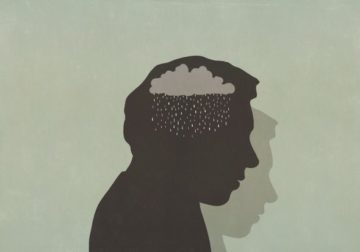Gary Stix in Scientific American:
 A consensus has emerged in recent years that psychotherapies—in particular, cognitive behavioral therapy (CBT)—rate comparably to medications such as Prozac and Lexapro as treatments for depression. Either option, or the two together, may at times alleviate the mood disorder. In looking more closely at both treatments, CBT—which delves into dysfunctional thinking patterns—may have a benefit that could make it the better choice for a patient.
A consensus has emerged in recent years that psychotherapies—in particular, cognitive behavioral therapy (CBT)—rate comparably to medications such as Prozac and Lexapro as treatments for depression. Either option, or the two together, may at times alleviate the mood disorder. In looking more closely at both treatments, CBT—which delves into dysfunctional thinking patterns—may have a benefit that could make it the better choice for a patient.
The reason may be rooted in our deep evolutionary past. Scholars suggest humans may become depressed to help us focus attention on a problem that might cause someone to fall out of step with family, friends, clan or the larger society—an outcast status that, especially in Paleolithic times, would have meant an all-but-certain tragic fate. Depression, by this account, came about as a mood state to make us think long and hard about behaviors that may have caused us to become despondent because some issue in our lives is socially problematic.
A recent article in American Psychologist, the flagship publication of the American Psychological Association, weighs what the possible evolutionary origins of depression might mean for arguments about the merits of psychotherapy versus antidepressants. In the article, Steven D. Hollon, a professor of psychology at Vanderbilt University, explores the implications of helping a patient come to grips with the underlying causes of a depression—which is the goal of CBT, and is also in line with an evolutionary explanation. The anodyne effects of an antidepressant, by contrast, may divert a patient from engaging in the reflective process for which depression evolved—a reason perhaps that psychotherapy appears to produce a more enduring effect than antidepressants. Scientific American spoke with Hollon about his ideas on the topic.
More here.
